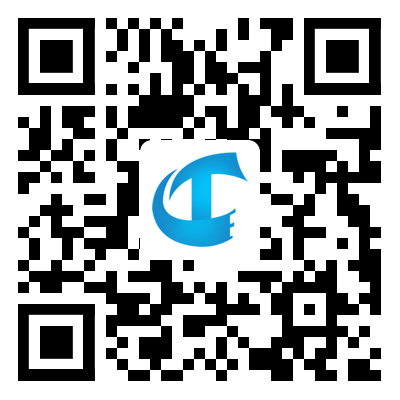
- English
- Español
- Português
- русский
- Français
- 日本語
- Deutsch
- tiếng Việt
- Italiano
- Nederlands
- ภาษาไทย
- Polski
- 한국어
- Svenska
- magyar
- Malay
- বাংলা ভাষার
- Dansk
- Suomi
- हिन्दी
- Pilipino
- Türkçe
- Gaeilge
- العربية
- Indonesia
- Norsk
- تمل
- český
- ελληνικά
- український
- Javanese
- فارسی
- தமிழ்
- తెలుగు
- नेपाली
- Burmese
- български
- ລາວ
- Latine
- Қазақша
- Euskal
- Azərbaycan
- Slovenský jazyk
- Македонски
- Lietuvos
- Eesti Keel
- Română
- Slovenski
- मराठी
- Srpski језик
The phenomenon of RV1126 1109 IPC 2MP Sony IMX307 PCB Board
2021-11-11
The phenomenon of RV1126 1109 IPC 2MP Sony IMX307 PCB Board
1. Once you encounter a PCB laminate problem, you should consider it in the PCB laminate material specification. Usually, if the technical specification is not carried out, it will cause continuous quality changes and consequently lead to product scrapping. Generally, material problems caused by changes in the quality of PCB laminates occur in products manufactured by manufacturers using different batches of raw materials or using different pressing loads. Few users have enough records to be able to distinguish specific pressing loads or batches of materials at the processing site. As a result, it often happens that PCBs are continuously produced and mounted with components, and warps are continuously generated in the solder tank, thus wasting a lot of labor and expensive components.
2. Surface issues
Symptoms: poor print adhesion, poor plating adhesion, some parts cannot be etched away, and some parts cannot be soldered. Available inspection methods: usually used to form visible water lines on the surface of the board for visual inspection.
3. Because of the very dense and smooth surface caused by the release film, the uncoated copper surface is too bright. Usually on the uncoppered side of the laminate, the laminate manufacturer does not remove the release agent. Pinholes in the copper foil cause resin to flow out and accumulate on the surface of the copper foil. This usually occurs on copper foil that is thinner than the 3/4 ounce weight specification. The copper foil manufacturer coats the surface of the copper foil with excessive amounts of antioxidants. The laminate manufacturer changed the resin system, stripping thin, or brushing method.
Due to improper operation, there are many fingerprints or grease stains. Dip with engine oil during punching, blanking or drilling operations.
4. Solution:
Before making any changes in laminate manufacturing, cooperate with the laminate manufacturer and specify the user's test items. It is recommended that laminate manufacturers use fabric-like films or other release materials. Contact the laminate manufacturer to inspect each batch of copper foil that is unqualified; ask for a solution to remove the resin. Ask the laminate manufacturer for the removal method. Changtong recommends using hydrochloric acid, followed by mechanical scrubbing to remove it. Contact the laminate manufacturer and use mechanical or chemical elimination methods.

1. Once you encounter a PCB laminate problem, you should consider it in the PCB laminate material specification. Usually, if the technical specification is not carried out, it will cause continuous quality changes and consequently lead to product scrapping. Generally, material problems caused by changes in the quality of PCB laminates occur in products manufactured by manufacturers using different batches of raw materials or using different pressing loads. Few users have enough records to be able to distinguish specific pressing loads or batches of materials at the processing site. As a result, it often happens that PCBs are continuously produced and mounted with components, and warps are continuously generated in the solder tank, thus wasting a lot of labor and expensive components.
2. Surface issues
Symptoms: poor print adhesion, poor plating adhesion, some parts cannot be etched away, and some parts cannot be soldered. Available inspection methods: usually used to form visible water lines on the surface of the board for visual inspection.
3. Because of the very dense and smooth surface caused by the release film, the uncoated copper surface is too bright. Usually on the uncoppered side of the laminate, the laminate manufacturer does not remove the release agent. Pinholes in the copper foil cause resin to flow out and accumulate on the surface of the copper foil. This usually occurs on copper foil that is thinner than the 3/4 ounce weight specification. The copper foil manufacturer coats the surface of the copper foil with excessive amounts of antioxidants. The laminate manufacturer changed the resin system, stripping thin, or brushing method.
Due to improper operation, there are many fingerprints or grease stains. Dip with engine oil during punching, blanking or drilling operations.
4. Solution:
Before making any changes in laminate manufacturing, cooperate with the laminate manufacturer and specify the user's test items. It is recommended that laminate manufacturers use fabric-like films or other release materials. Contact the laminate manufacturer to inspect each batch of copper foil that is unqualified; ask for a solution to remove the resin. Ask the laminate manufacturer for the removal method. Changtong recommends using hydrochloric acid, followed by mechanical scrubbing to remove it. Contact the laminate manufacturer and use mechanical or chemical elimination methods.




